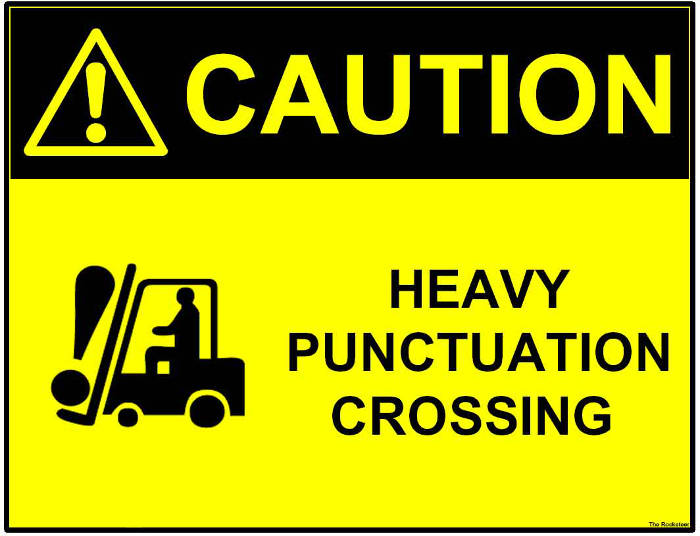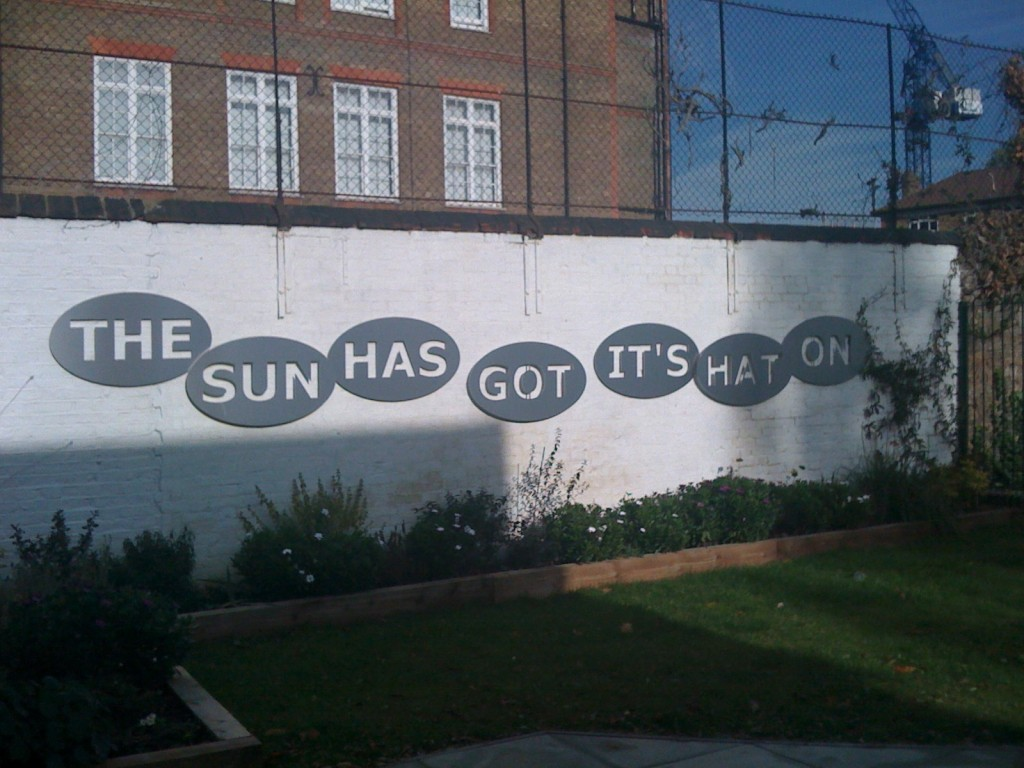
Image via Kevin Trotman
There was a mixed reaction when the idea for this article was first batted about the magazine.co.uk office. The non-writers reared up in apprehension: “What a boring idea. Who would read an article about punctuation?” they scorned.
The reaction from the writers was quite different: “What’s my favourite punctuation? Hmm, really interesting question! I’ll think about it and get back to you.”
You see, punctuation is for writers as flour is for bakers. Without it, all we’d ever produce is a disgusting sloppy mess of separate ingredients, lacking any form or structure. Punctuation is the glue that holds sentences together and, just like how there are different flours for different cakes, there’s different kinds of punctuation for different kinds of writing.
For example, although semi-colons can be incredibly useful for academic writing - where its necessary for ideas to be conveyed in their full complexity - it’s widely accepted that they have no place on the web, where readers have a short attention span and require sentences to be broken down into easily digestible tidbits.
Semi-colons are among one of the most mistreated of all punctuation. Ben Locker, owner of The Copywriting Agency, complained:
“Almost everyone under 30 seems to use them in place of a colon when they're about to kick off a bulleted list. Give it another 30 years and I expect that will have become 'correct' usage.”
He also has a gripe for poor apostrophe use and posts the worst to his blog, like this pas chic erruer spotted on Paris’ trendy Rue Montorgueuil.
To be fair, apostrophes are complicated enough for native English speakers themselves to understand. They can be used in hybrid words like ‘don’t’ ‘we’d’ and ‘she’s’ to indicate missing letters, but also to indicate possession, like ‘Beyonce’s bum’. However, they’re not used for possession when the noun is a pronoun: it’s its balcony, not it’s and whose balcony, not who’s.

Image via Renee Rosen-Wakeford
Another common mistake is to use an apostrophe to indicate a plural. You often see this on market signs and specials boards: Strawberry's only £1 a punnet, for example - or to pluralise decades: The 1990’s. Both are wrong, it’s Strawberries and 1990s.
At this stage, you might be wondering “who the hell cares? Why is grammar so important anyway?” Well, Nan is so passionate about spreading best grammar practise that she’s co-founded a grammar university.
“Young people have grown up in an era in which correct spelling, punctuation and grammar are unnecessary for 90% of their communication exchanges. In fact, in many cases, using actual words is redundant, thanks to the rise of emojis. Sadly, not everyone is an advocate of emojis and internet abbreviations,” says Nan.
“Formal writing is still relevant in "grown up" world. Whether they're studying for college entrance exams, writing essays for school or trying to win scholarships, many young people have begun to realise just how little they know about proper grammar.”
The Grammar YUNiversity, as it’s called, is picking up steam, with over 500,000 followers across their social networks. At the moment, the campus is 100% virtual, with Nan posting daily grammar tips to Twitter, Tumblr and Instagram. The long-term goal is for the company to set up spaces across the globe where writers can come to create content and attend free guest lectures.
The fact is that proper grammar is important at any age, especially when applying for jobs. Research shows that almost half of CVs received by recruiters contain a spelling or grammar error. So it stands to reason that if you can produce a CV that’s absolutely spotless, you’ll automatically put yourself ahead of half the competition.
Thankfully, there are loads of things you can do to improve your grammar. Following Grammar YUNiversity on Twitter would be a good start, or you could download and install Grammarly on your browser - a sort of advanced spell check which detects a much wider range of grammatical errors than its built-in counterparts.
Kimberly Joki, content manager at Grammarly, said:
"Most spelling and grammar checkers do not check any punctuation. Some checkers only suggest basic punctuation correction. Grammarly prioritises punctuation correction. Grammarly not only corrects incorrect punctuation use (i.e. misplaced commas and misused semicolons) but also suggests missing punctuation, like commas and periods."
Pretty handy, huh? But if you’re still confused about punctuation, maybe LL Cool J can help:






